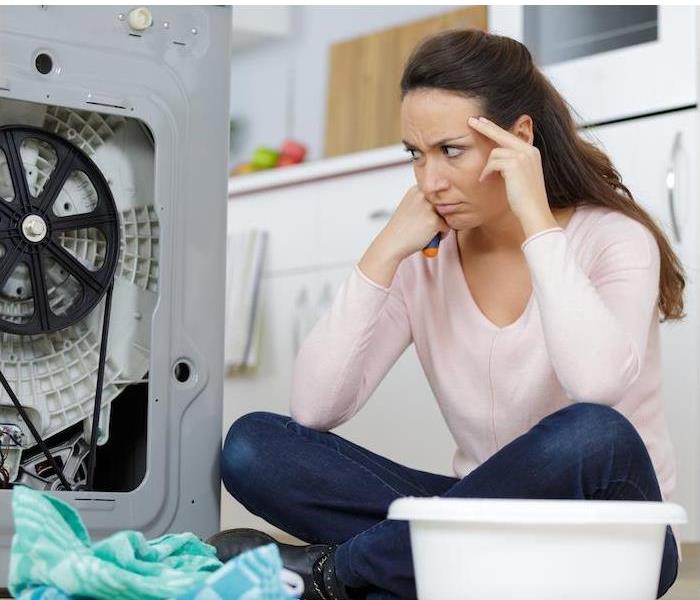Appliances That Lead to Hidden Water Damage | SERVPRO® of Henderson/Boulder City
2/12/2020 (Permalink)
Appliances That Lead to Hidden Water Damage | SERVPRO® of Henderson/Boulder City - SERVPRO OF HENDERSON/BOULDER CITY Blog
Sometimes, water damage comes in an obvious form such as a flood or a roof leak and is discovered right away.
Other times, such as when appliances leak, the water damage can remain hidden for an extended period of time, causing compounding complications as it sits. Thankfully, by knowing what to look for, individuals can prevent this headache from occurring.
Hot Water Heater
While the lifespan of hot water heaters is generally between 10 and 15 years, leaks can often develop sooner. Hot water heaters move a large volume of water, and wear and tear on their components can often break them down over time. Leaks can come from the pipes or the drain pan, so it is wise to do a thorough check often.
Refrigerator
The most common type of water line that runs to a refrigerator is a kind made of a bendable plastic, which is a material prone to tears and sealant issues. Because of this, hidden leaks can arise. Due to the fact that refrigerators are rarely moved, these leaks can go on for a long time before homeowners are aware. Regular inspections are the best prevention method.
Dishwasher
Dishwashers are also typically tucked away and are thus masters at hiding water damage. To add to this, there are many reasons why insurance will not cover water damage from appliances, especially if your dishwasher’s estimated lifespan has already expired. Doing regular checks can help you catch the problem before it becomes severe in order to prevent any excessive damage from slipping by under the radar.
Washing Machine
Leaks from the hoses of washing machines are so common that they should be inspected each month for any signs of aging or moisture buildup. It is also recommended that they are to be replaced within five years, even if there are no signs of damage or leakage present.
Air Conditioner
The condensation of an air conditioning unit is usually drained away, but if something malfunctions, it can become backed up and lead to water damage both inside the unit and to the surrounding structures. Keep up with your manufacturer’s recommended service schedule and check on your unit regularly to make sure the water is draining away as it should be.
If your home has been impacted by water damage or you’d like to put a plan in place in case it happens to you, contact us to learn how we can help.

 24/7 Emergency Service
24/7 Emergency Service
